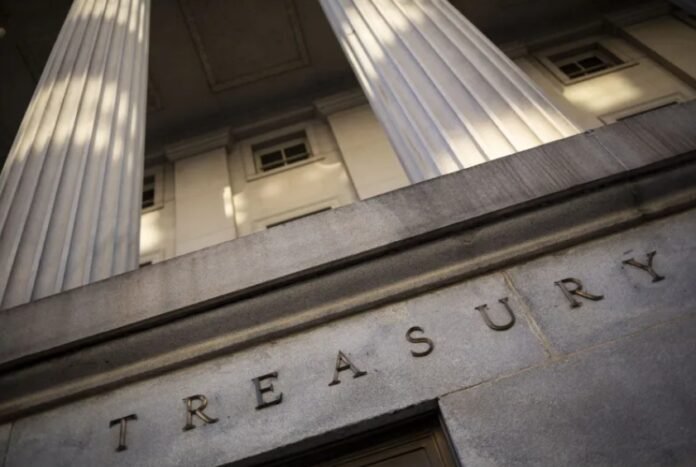In a case that highlights the vulnerabilities within financial institutions, a former employee of TD Bank’s anti-money-laundering (AML) department has pleaded guilty to felony charges linked to a check-fraud scheme. The case, which has captured attention due to its connection to the banking industry’s ongoing efforts to prevent financial crimes, serves as a stark reminder of the risks posed by insider threats.
Daria Sewell, a former worker at TD Bank, admitted to possessing customers’ personally identifiable information (PII) as part of the fraudulent activities. The crime, a single count related to check fraud, was serious enough to warrant a Class E felony charge. Sewell, who worked in an AML role, was sentenced to five years of probation on June 12. While probation is often seen as a less severe sentence compared to jail time, the case serves as an important lesson in the complexities of financial security.
A Breach of Trust: Inside Threats in Financial Institutions
The nature of the crime is particularly alarming because of Sewell’s position in the AML department. As an employee tasked with identifying and preventing financial crimes, she was entrusted with highly sensitive customer data and had access to systems designed to detect illicit activity. Instead of upholding the integrity of her role, Sewell exploited this position for personal gain, illegally accessing information that facilitated fraudulent check schemes.
This incident shines a light on the importance of strong internal controls and the need for robust oversight within financial institutions. AML departments, which are responsible for monitoring transactions and reporting suspicious activities, are critical to protecting both customers and the broader financial system. The fact that someone in such a position could be involved in fraudulent activities underscores the need for constant vigilance in ensuring that employees entrusted with sensitive data remain committed to their duties.
Manhattan District Attorney Alvin Bragg expressed his concern over the case, emphasizing the seriousness with which authorities approach fraud in the banking and financial services industry. He remarked, “This defendant brazenly exploited her position for her own personal profit.” His words reinforce the notion that financial institutions, and the individuals who work within them, have a critical responsibility to maintain the public’s trust.
A Larger Picture: The Growing Problem of Financial Crimes
While this case is certainly disturbing, it is not an isolated incident. The banking and financial services industry has long been a target for fraudulent activities, from money laundering to identity theft, and even insider fraud. Recent years have seen an increase in cyber-related crimes as well, with hackers gaining access to sensitive financial information at an alarming rate.
The financial services industry, though heavily regulated, is constantly adapting to new threats. Despite the increased investment in technology and personnel to combat fraud, incidents like Sewell’s highlight a persistent challenge: insider threats. While many financial institutions are focused on external risks, internal fraud can be just as damaging, if not more so. In fact, employees who have access to sensitive customer data or systems are often in the best position to perpetrate fraud.
This reality raises questions about how financial institutions can enhance their internal controls. Are current vetting procedures enough to prevent employees from turning rogue? Do financial organizations adequately monitor employee behavior and data access, especially when employees are working in critical departments like anti-money-laundering?
The Impact on Customers and the Financial System
The effects of insider fraud extend beyond the individual perpetrator to the broader financial system. In this case, customers whose personally identifiable information was stolen could potentially face a range of consequences, including identity theft, financial loss, and damage to their credit histories. While the exact extent of the fraud in Sewell’s case remains unclear, the fact that such a breach occurred within a financial institution charged with upholding the law shows the fragility of customer trust.
For banks, incidents of fraud can also have significant reputational and financial costs. In Sewell’s case, the U.S. unit of Toronto-based TD Bank Group had already pleaded guilty to money-laundering conspiracy charges the previous year. This additional fraud case further tarnishes the bank’s image, raising questions about its ability to prevent such incidents despite the regulatory and compliance measures in place.
The issue of financial crimes, particularly when committed by employees within a bank, underscores the need for banks to implement comprehensive monitoring programs. These should include constant audits, frequent checks on employee access to data, and thorough background checks for all staff members, especially those working in critical departments. Moreover, banks must ensure that employees understand the serious consequences of any unethical behavior, both for the institution and for their careers.
Legal and Regulatory Oversight: A Growing Need for Stronger Protections
Sewell’s case also highlights the growing need for enhanced legal and regulatory frameworks aimed at preventing and punishing financial crimes. While regulations like the Bank Secrecy Act and the Anti-Money Laundering Act exist to keep financial institutions in check, there is always room for improvement. Regulators need to ensure that penalties for insider fraud are sufficient to deter future wrongdoers, while also supporting institutions in their efforts to prevent such incidents in the first place.
In the case of TD Bank, the financial institution is not just dealing with the criminal charges tied to Sewell’s actions, but also with the broader implications of having failed to stop a fraudster from exploiting their systems. For customers, the main concern is the safety of their financial data, and for the bank, it is the potential erosion of trust in its ability to protect that data.
Looking Ahead: Strengthening Security and Trust
While this case represents a serious breach of trust, it can also serve as a valuable lesson for the financial services industry. The banking sector must continuously evolve its security protocols to address the risks posed by insider fraud, especially in departments like anti-money laundering, where employees handle sensitive customer data.
To avoid future incidents, financial institutions should consider the following strategies:
- Stronger Employee Vetting and Training: Ensuring that employees are thoroughly vetted, and regularly trained on the ethical responsibilities they carry, is essential in preventing fraud.
- Enhanced Internal Monitoring and Auditing: Increased oversight, including routine audits and real-time monitoring of employee activities, can help detect suspicious behavior before it escalates.
- Clear and Transparent Consequences: Institutions must set clear expectations for behavior and communicate the severe consequences of breaching those expectations.
As the financial services industry continues to face new challenges in an increasingly digital world, protecting customers’ personal information and maintaining institutional integrity will remain top priorities. Daria Sewell’s case is an unfortunate example of what happens when these protections fail, but it also serves as a timely reminder that the fight against fraud is ongoing and must remain a central focus for banks everywhere.




